Common Health Issues in Shiba Inu Dogs and How to Manage Them
Shiba Inus are often considered a healthy and resilient breed compared to other dogs. However, they are still prone to certain illnesses. As a responsible owner, it’s essential to be aware of these common health issues and how to properly manage them.
Skin Diseases: Pyoderma (Bacterial Skin Infection)
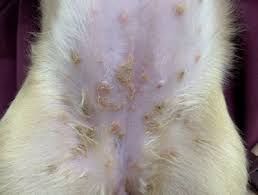
Shiba Inus, like many other breeds, are susceptible to skin diseases. One common skin condition is pyoderma, which occurs when bacteria like Staphylococcus infect the skin, often due to damage to the skin’s protective barrier from scratching or over-shampooing. The initial symptoms include redness, itching, and hair loss, and chronic cases can lead to darkened, thickened skin due to hyperpigmentation. Pyoderma is often found around the mouth, face, groin, inner thighs, or between the toes but can occur anywhere on the body.
Treatment involves using antibiotics to eliminate the infection, as well as medicated shampoos to keep the skin clean. To prevent further irritation from scratching, it’s helpful to dress the dog in breathable clothing and regularly trim their nails. Additionally, providing a diet rich in vitamin E and essential fatty acids can boost skin immunity and aid in faster recovery.
Allergic Dermatitis
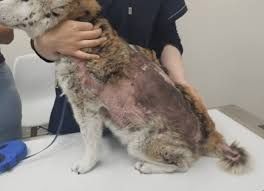
Shiba Inus can also suffer from allergic dermatitis, which can be triggered by various allergens in their environment or diet. If the allergens come from food, the condition is known as food-related dermatitis. Environmental allergens such as dust mites, pollen, and mold can cause atopic dermatitis. Common symptoms include intense itching, which worsens as the dog scratches or chews at their skin.
Contact dermatitis can also occur when a Shiba Inu’s skin comes into contact with irritants such as plastic dishes, synthetic collars, or specific plants found in parks. The areas typically affected are the muzzle, abdomen, paws, and groin.
Treatment requires identifying and eliminating the allergen. Medication like steroids, immunosuppressants, and antihistamines can help manage itching, while frequent washing with medicated shampoos and maintaining a healthy diet rich in vitamin E and essential fatty acids can provide relief.
Joint and Bone Disorders: Patellar Luxation
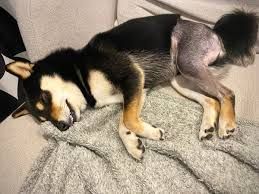
Patellar luxation is a common issue in Shiba Inus, where the kneecap (patella) dislocates from its normal position, making it difficult for the dog to walk. Although some dogs are born with this condition, it can also be caused by excessive physical activity or trauma. In severe cases, surgery may be required to correct the condition.
For milder cases, anti-inflammatory drugs, as well as supplements like glucosamine and chondroitin sulfate, can help manage symptoms. It’s essential to maintain the dog’s weight and keep their living environment free of slippery surfaces to reduce stress on their joints.
Digestive Issues: Diarrhea
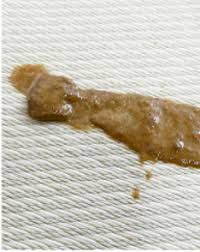
Shiba Inus may experience diarrhea due to overeating, sudden changes in diet, parasitic infections, bacterial infections, ingestion of foreign objects, or stress. In chronic cases, underlying conditions like pancreatitis, allergies, tumors, or thyroid problems may be involved.
Treatment for diarrhea involves fasting the dog appropriately and limiting food intake while ensuring proper hydration. In cases of severe diarrhea, especially in puppies, it’s crucial to consult a vet immediately, as it can be life-threatening due to dehydration.
Urinary Tract Infections: Cystitis and Urethritis
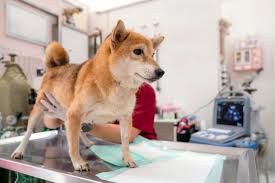
Cystitis (bladder inflammation) and urethritis (urethra inflammation) are common in Shiba Inus and are usually caused by bacterial infections. However, bladder stones or tumors may also trigger these conditions. Symptoms include frequent urination, blood in the urine, fever, and lethargy.
Treatment includes antibiotics or anti-inflammatory medication, along with dietary adjustments. Owners should encourage their dogs to drink plenty of water and avoid holding in urine for long periods by increasing bathroom breaks and walks.
Parasite Infections: Mange and Fleas
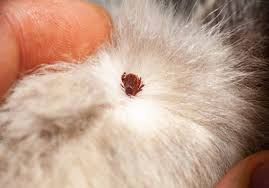
Mange, caused by demodex mites, can affect Shiba Inus. These mites are naturally present on a dog’s skin but can multiply and cause infections when the dog’s immune system is weakened. Symptoms include intense itching, red bumps, excessive dandruff, and hair loss, particularly around the face and limbs.
Treating mange involves the use of medicated baths and antiparasitic drugs. Fleas are another common issue, with their bites causing severe itching and possible allergic reactions. Regular use of flea preventatives and inspecting your dog after walks can help control flea infestations.
Gastrointestinal Parasites
Shiba Inus can become infected with internal parasites such as roundworms or hookworms. These parasites are usually ingested through contaminated food, water, or soil, and in severe cases, can cause diarrhea, weight loss, and lethargy. Preventive measures include regular deworming and keeping your dog’s environment clean.
External parasites, such as ticks, can transmit life-threatening diseases like Lyme disease and Babesiosis. Frequent brushing and checking your dog’s coat after walks, particularly if they’ve been in grassy areas, can help prevent tick bites.
Eye Diseases: Cataracts
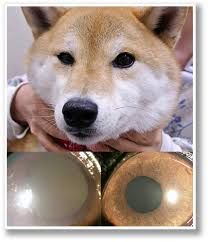
As Shiba Inus age, they may develop cataracts, which cause cloudiness in the eye’s lens, leading to vision impairment. Early signs include bumping into objects or a reluctance to go for walks. Cataracts can be caused by genetics, injury, or diabetes, and if left untreated, they can lead to blindness.
Eye drops or antioxidant supplements can slow the progression of cataracts, but surgical removal is the only way to restore vision in severe cases.
Preventive Health Care: Long-Term Management
To ensure your Shiba Inu’s long-term health, regular vet checkups and a proactive approach to healthcare are essential. Keep an eye on their eyes, ears, and skin, monitor their bathroom habits, and make sure they get plenty of exercise to maintain strong joints. A balanced diet tailored to their needs, combined with flea and tick preventatives, will help keep them healthy.
By being vigilant and responding quickly to early signs of illness, you can help your Shiba Inu lead a long, happy, and healthy life.



Comments